My Fair Lady – Sydney Season
My Fair Lady first appeared on Broadway 60 years ago, and ever since it has won the hearts of fans and critics alike. This transformation of George Bernard Shaw’s Pygmalion to this Lerner and Loewe musical was a huge success – finding a new audience for the story of a plain, poorly-spoken flower girl who learns to master the English language, thus gaining vital social capital. Julie Andrews, the original Eliza Doolittle and adored queen of stage and screen, has brought this production to life again at the Sydney Opera House, celebrating its diamond jubilee from the director’s chair.
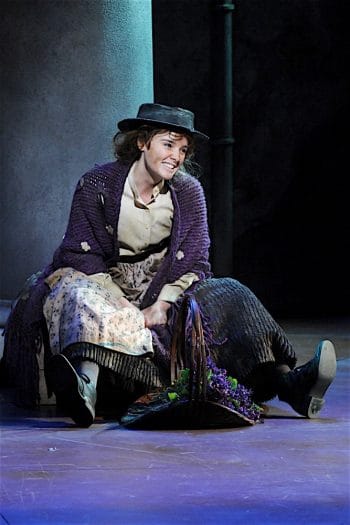
The restored production boasts set and costume design from the original Broadway run and despite their age, Oliver Smith’s regal set and Cecil Beaton’s period costumes (recreated by John David Ridge) don’t feel like relics. It‘s an indulgent and opulent foray into musical theatre past, and, together with a stellar cast, fresh choreography by Christopher Gattelli and faithful direction by Julie Andrews that cuts right to the feelings behind the story, this production tempers the redundancies of being a 1956 facsimile with some appealingly lovely elements.
The rich, now-familiar score is a masterpiece of musical theatre and under Guy Simpson’s soaring direction it is gorgeously indulgent. The ensemble handle its harmonies exquisitely and cultivate a sense of joy in the larger numbers, handling the spirited choreography with ease.
The show has been well cast. Alex Jennings’ Henry Higgins is appropriately pompous and demeaning (he won an Olivier Award for playing the part in 2003); Reg Livermore’s Alfred P Doolittle earns plenty of laughs as Eliza’s drunkard father; and Robyn Nevin is as detailed and captivating as ever, providing a much-needed woman’s voice throughout the show as Mrs Higgins.
But the star of the show is undoubtedly Anna O’Byrne. Her frankly fierce and ambitious Eliza transforms beautifully from an intense, determined flower girl dreaming of a better life to a sophisticated, noble woman who knows her own worth (and she always sings like an angel). O’Byrne handles comic moments with ease, particularly ‘Just You Wait’ and the Ascot racing scene, but it is her nuanced transition into self-awareness in the second act that is most endearing, and exciting, to watch.
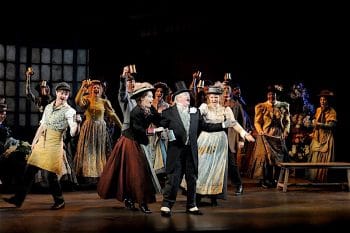
Beyond looking and sounding beautiful, as a modern audience, there are some concepts baked into the show that are well worth investigating. It’s hard now to simply forgive the misogyny lurking in the book, especially when this production seems to excuse it, focusing instead on other, more cosmetic, interests.
In the first act Higgins takes Eliza on as his student, but the way he treats her is often imperiously sexist and denies Eliza any agency of her own, forcing her to work into early hours of the morning while denying her food and rest, and prescribing to her the ideas she is allowed to talk about. Higgins’ pompous attitude seems like a mockable quality, but it’s questionable whether it’s ever really treated like that by Andrews; consequently, many of his most offensive lines receive laughs from the audience and, shockingly, there’s no clear sign whether the audience is laughing with him or at him. Most of the time, it seems like they’re laughing with him.
Despite Higgins’ reproachable attitude, there’s hope for retribution as we return for the second act. Freshly home from a high-stakes ball that would prove Higgins’ success at training Eliza (at which she does extremely well and leaves with many admirers), Higgins is congratulated by his staff, and himself, for Eliza’s efforts (‘He did it’). Eliza is completely ignored and pushed aside.
When Eliza finally confronts Higgins over his poor behaviour and utter disregard for her feelings, fully assuming her own agency for the first time, it’s a moment of relief. Perhaps this undeterred sexism will addressed by our strong protagonist? It is, and for a moment it’s triumphant – but despite her strong and confident argument, Higgins ultimately remains completely unaware of his shortcomings.
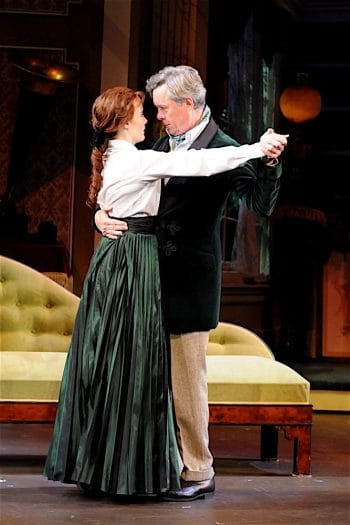
Most shocking is the final scene, in which Eliza actually, inexplicably, returns to Higgins, and all he says is “where the devil are my slippers.” This powerfully demonstrates his inability to change, and the impossibility of better things for Eliza. Worse still, in the script Eliza has tears in her eyes as she ‘understands’.
Our final moment is not one in which Eliza’s resolute shutdown of the patriarchy is allowed to resonate or even have consequence, nor is this last scene one that celebrates both characters growing and changing to be equals. Instead it is an affirmation of Eliza’s willingness to subject herself to Higgins’ sexist attitudes as though they are a compliment, and in a 2016 context this blatant sexism is not something we need to be seeing on our stages.
Could this have been different? Is it Andrews’ production that worships Higgins’ too much, or dismisses Eliza’s own personality too readily? It begs the question: can we still produce golden age musicals that are of a specific context we no longer share the values of?
The answer is yes, but we must be careful how we treat them, and how we approach them from the ground up. To stage My Fair Lady in 2016 should surely mean Higgins’ outrageous misogyny must be interrogated. His dated and potentially harmful attitudes must be plainly challenged by the direction and the audience invited to hold him in derision and laugh at him, as opposed to with him.
Of course there is only so much direction can do – inherently the book treats women as objects to be controlled by men, Andrews’ production is passive on that stance, which makes this otherwise gorgeous production feel out of touch with 2016 values.
Beauty, polish, and talent can go a long way – and in this production, they go far. But it might not be far enough. We’re left with a final question: Is a beautifully done production enough to excuse the misogyny so rife in this show?

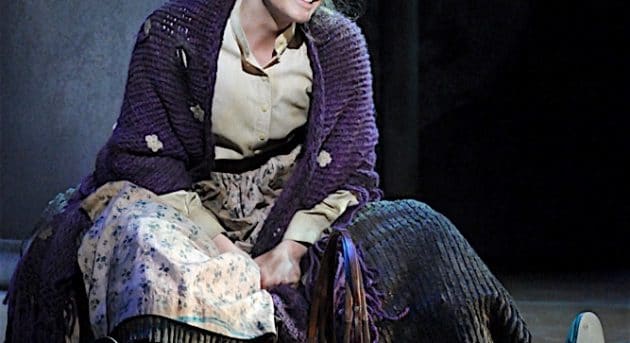

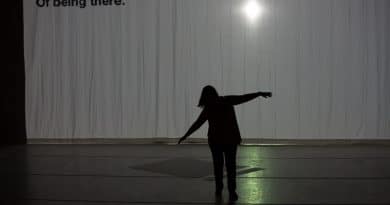
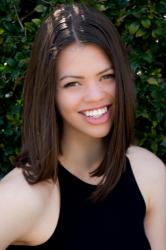
Oh, seriously…? It is a museum piece. It’s book cannot be judged on modern day values… It a century old. Imagine the uproar if it was changed.
Get a grip !
This is an interesting conversation and one that I had with my partner after seeing the show. I disagree that the audience was laughing with Higgins in agreement at his sexist lines- there were definite groans and laughter AT him and his inability to change. Alex Jennings’ delivery of the line ‘Eliza’ before the ending also gave some final glimpse of hope.
I don’t think it can or should be altered just because we no longer agree with it OR that it doesn’t have a place to be performed in 2016, – much like Grease remains enjoyable despite having a similar misogynistic message. I always leave both feeling uneasy. With our modern perspective we can now look at the show/book/film with a better understanding.
And it is an amazingly beautiful production and I loved it!
Well said, can’t wait for Melbourne season ?
The review’s central argument that classic works like MY FAIR LADY should only be staged if they are overtly “interrogated” and realigned with “2016 values” (whatever that might be) evinces a depressingly homogenised view of the dramatic arts and how they work for contemporary audiences. It also betrays a disturbingly superficial understanding of the play at hand. Both Shaw’s PYGMALION and its brilliant translation into the idioms of the Broadway Musical in MY FAIR LADY possess a much more complex sexual politics than is admitted in this sophomoric diatribe with its sweeping indictments of “outrageous misogyny” and “blatant sexism”.
Moreover, the reviewer seems to so thoroughly gloss over the deft direction of the material by Julie Andrews and, in particular, the nuanced characterisation provided by the two leads as to make me wonder if we saw the same production? In Jennings’ beautifully calibrated performance, Higgins emerges as a much more complex and subtly evolving figure than the “pompous and demeaning” caricature painted here. His eleven o’clock number, “I’ve Grown Accustomed to Her Face” is performed with such depth and pathos as to function as a kind of symbolic psychic breakdown with Higgins moving desperately between polarities of despondency and anger before falling into poignant regret. This leads directly into a final coda scene that is staged with far more emotional texture and ambiguity than the reviewer seems able to admit or even recognise. Indeed it’s telling that Beton is forced to reference the 1956 script where she tells us “Eliza has tears in her eyes” and Higgins “demonstrates his inability to change” because it’s certainly not the way it is staged in this intelligently directed production. In a radical departure from most earlier versions of MY FAIR LADY, Jennings’ Higgins is the one with “tears in his eyes” as he cringes with shame and throws his face into his hands when he hears the recorded playback of his earlier verbal abuse, while O’Byrne’s Eliza stands proudly — and, it must be said, thoroughly dry-eyed — to the side. Higgins’ voice breaks with emotion as he cries out “Eliza” before reverting to a wry “Where the devil are my slippers?” that neither she nor we believe is said with much conviction.
If Ms Caton wants to pursue a career as an arts critic, she would be well advised to abandon the heavy-handed ax-grinding and stick to the task of reviewing a production on its artistic and performative merits.
Bec is certainly not the only critic who chooses not to divorce politics from arts, taking a broader worldview approach to reviewing art. She also is not the only critic to take a view like this about this production of My Fair Lady, or of the text more generally. This might not be the way you see theatre, but it’s a perfectly valid one, and she has articulated her experiences and opinion, which is her job, quite well!
People “recognise” different things – I spent an hour last night with a group of critics debating exactly these issues, and all four of us saw various moments, including the ending, differently.
It’s great that you enjoyed the production! It’s also fine that Bec didn’t! I’m proud to publish her work.
A disappointingly reductive polemic smothers an otherwise properly appreciative appraisal here. If the reviewer can’t see that both Shaw in PYGMALION and Lerner, following suit in its musical adaptation, MY FAIR LADY, are lampooning Higgins’s beastly misogyny toward Eliza (which is only an extension of his pompous overall misanthropy), then she needs to take a course in Literary Semantics 101, and specialise in the extra strand on: Irony. Speaking of irony, the one tell-tale misstep this piece takes is to praise Anna O’Byrne’s singing which is competent, at best; and though ‘showbiz legend’ Reg Livermore is a lot of fun as Alfred Doolittle, there’s no voice there with which to project the character’s two big booming ‘belter’ numbers. But to critique O’Byrne’s merely adequate vocals would upset, or blur, the condescending neatness of this article’s basically dishonest and insidious ideological agenda. In attempting to deconstruct a great show, the reviewer puts on a poor show of fair, and genuinely insightful, dramatic criticism. That such a spurious piece is published by a journal devoted to theatrecraft in this counte\ry is really lamentable. And deeply ironic.
The production is ‘of the time’, and that is as the times were. Hopefully we can choose differently in our own time, but ‘sanitising’ that which was by imposing the way of living and interacting together we are hopefully living and moving further towards now on a piece set in the past creates a falsity. Just because we enjoy what is portrayed on the stage (and I did very much on Saturday night!) does not mean we take from it a lesson on how to live our lives and relate between the genders in the present. Bringing what has been described in this article into such sharp view may even reinforce our determination for that to not be how we males relate to the females in our lives. Surely not everything need be a lesson. Alfred P Doolittle’s delight in the over-consumption of alcohol for instance will not be leading me down the path to ruin. I think we can choose between entertainment and life-lessons. Loved the production, and I’m not a regular musical-enthusiast.
Poor Bec Caton! She needs to see and understand Shaw’s irony! What about the simpering role of Freddy, Bec? Should we not comment on that too? (Mark Vincent was perfect). And as for slamming Amanda’s strong and characterful voice as merely “adequate”…well, it’s not opera Bec. I hope your reviews are better as you mature.
I believe that Higgins tells Eliza early on that he is not treating her so poorly because she is a young lady of the lower class. He rather proudly proclaims that he treats everyone this way.
At least he says this in the current production in previews at Lincoln Center, New York, directed by Bartlett Sher.